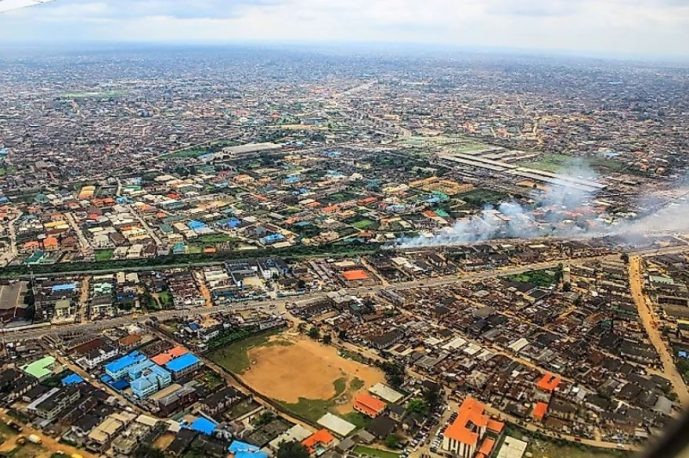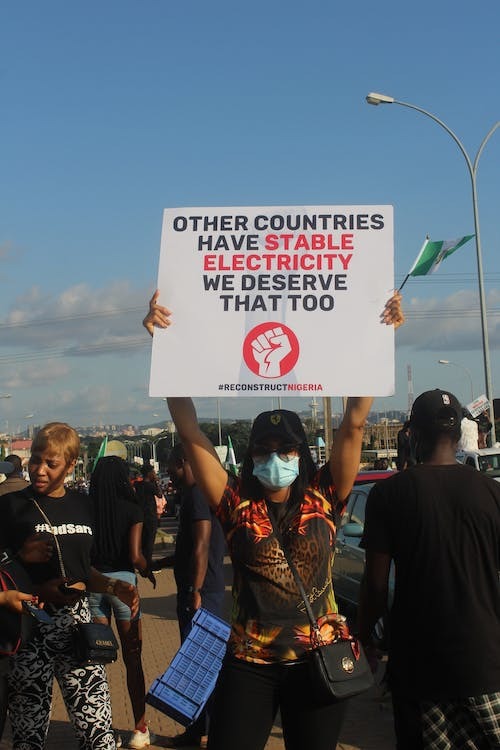You reside in Nigeria. You have a job that requires you to commute fars away every day. And you most likely work long hours as well, making it hard to conserve cash for a future that might not come quickly. You need to pay costs on time and make payments on time. But those are just the beginning of your issues when it comes to saving money in Nigeria. There are many different types of courts in Nigeria, some of which can cost you a lot of cash and time. To reduce your mind about this, this short article will explain what courts are, how they work, and the different sort of courts you can utilize to help you conserve cash and time.
What Is a Court?
A court is a governmental organization where legal disputes are fixed and justice is administered.

It is a place where individuals or companies can look for a fair and neutral resolution to their disagreements. Courts play a crucial role in supporting the guideline of law and ensuring that justice is served. They have the authority to interpret and use the law, as well as to make choices that have legal consequences.
In Nigeria, the court system is hierarchical, implying that there are various levels of courts with differing degrees of authority and jurisdiction. The hierarchy of courts in Nigeria is designed to make sure that cases are handled by the proper court based on their nature and complexity. Understanding the hierarchy of courts is necessary for choosing the best court to conserve both your money and time.
How Does a Court Work?
Before delving into the different kinds of courts in Nigeria, it is necessary to comprehend how a court works.

When a conflict develops between two celebrations, they can select to resolve it through negotiations, mediation, or arbitration. Nevertheless, if these techniques fail, the parties may choose to take their dispute to court. The court procedure typically involves the following steps:
1. Filing a Complaint or Petition: The complainant starts a lawsuit by submitting a grievance or petition with the appropriate court. The grievance lays out the legal claims and truths supporting the plaintiff's case.
2. Serving the Defendant: The defendant is served with a copy of the grievance and is given a chance to respond to the allegations.
3. Pre-trial Proceedings: The court holds pre-trial conferences to talk about the problems in the event, exchange evidence, and attempt to settle the conflict without a trial.
4. Trial: If the case proceeds to trial, the parties provide their proof and arguments before a judge or jury.

The judge or jury then makes a decision based on the proof presented.
5. Judgment: After the trial, the court provides a judgment, which is a formal decision on the benefits of the case.
6. Appeals: If either celebration is disappointed with the judgment, they can attract a higher court to review the decision.
This is a streamlined summary of the court procedure, and the specifics might vary depending on the type of court and the nature of the case.
Different Kinds of Courts in Nigeria
In Nigeria, there are several kinds of courts, each with its own jurisdiction and authority. Comprehending the various type of courts can help you pick the right court to save both your cash and time. Here are some of the significant kinds of courts in Nigeria:
1.

Magistrate Courts: Magistrate courts are the most affordable level of courts in Nigeria. They have actually limited jurisdiction and handle less serious bad guy cases, civil matters, and household disputes. Magistrate courts are typically situated in city government areas and are accessible to the basic public.
2. High Courts: High courts are the next level of courts in the hierarchy. They have broader jurisdiction and handle more severe criminal cases, civil matters, and appeals from the magistrate courts. High courts are located in each state capital and are commanded by judges selected by the state government.
3. Federal High Courts: Federal High Courts are developed by the federal government and have jurisdiction over matters involving federal laws, humans rights, and disputes in between the federal government and states or individuals. They handle cases such as banking and monetary criminal activities, copyright conflicts, and admiralty matters.

4. Court of Appeal: The Court of Appeal is the second-highest court in Nigeria. It hears appeals from the High Courts and Federal High Courts. The Court of Appeal is divided into divisions, with each division having jurisdiction over specific states in Nigeria.
5. Supreme Court: The Supreme Court is the greatest court in Nigeria. It has the last authority to translate the constitution and make decisions on matters of national significance. The Supreme Court hears appeals from the Court of Appeal and has the power to examine and reserve decisions made by lower courts.
These are just a few examples of the various type of courts in Nigeria. There are other specialized courts, such as the Customary Court of Appeal, Sharia Court of Appeal, and the National Industrial Court, which manage particular kinds of cases.
How to Choose the Right Court for You: A Step-By-Step Guide
Picking the ideal court can make a considerable distinction in conserving both your cash and time.

Here is a detailed guide to help you select the best court for your case:
1. Identify the Nature of Your Case: Identify the nature of your case, whether it is a criminal matter, civil dispute, family issue, or any other kind of legal problem. This will assist you determine which court has jurisdiction over your case.
2. Research the Jurisdiction of Different Courts: Understand the jurisdiction of various courts in Nigeria. Each court has particular powers and authority, so it is important to choose a court that has the jurisdiction to hear your case.
3. Consider the Complexity of Your Case: Assess the intricacy of your case. If your case involves intricate legal problems or needs specialized knowledge, you may need to select a higher court with more knowledgeable judges.
4. Examine the Accessibility of the Court: Consider the place and availability of the court.

Selecting a court that is easily accessible to you can save you time and transport costs.
5. Look For Legal Advice: Consult with a lawyer to get professional recommendations on choosing the right court for your case. A lawyer can help you navigate the court system and guarantee that your case is dealt with properly.
By following these steps, you can select the ideal court that will conserve you both cash and time.
Conclusion
Browsing the court system in Nigeria can be an overwhelming job, specifically if you are not acquainted with the various type of courts and their jurisdictions. Nevertheless, by comprehending the hierarchy of courts and following the step-by-step guide supplied in this article, you can select the ideal court that will assist you conserve both your money and time. Remember, each court has its own jurisdiction and authority, so it is important to select a court that is appropriate for your case.
Seeking legal guidance can also be beneficial in ensuring that your case is dealt with appropriately. With the best court in your corner, you can have assurance knowing that justice will be served effectively and effectively.
 Add Row
Add Row  Add
Add 




 Add Row
Add Row  Add
Add 

Write A Comment